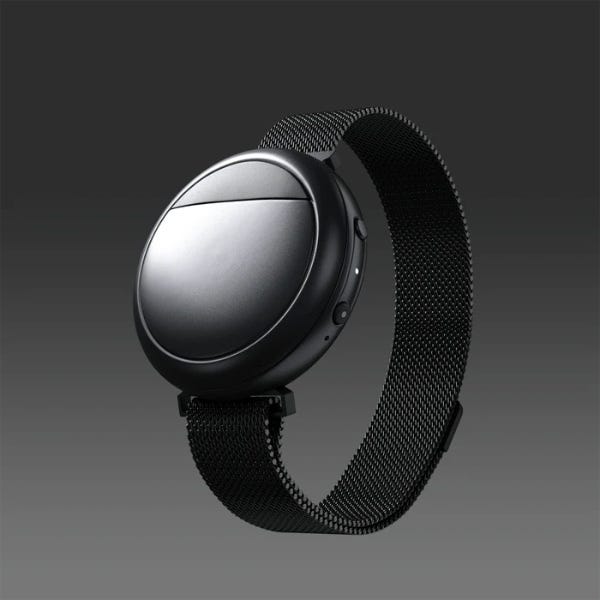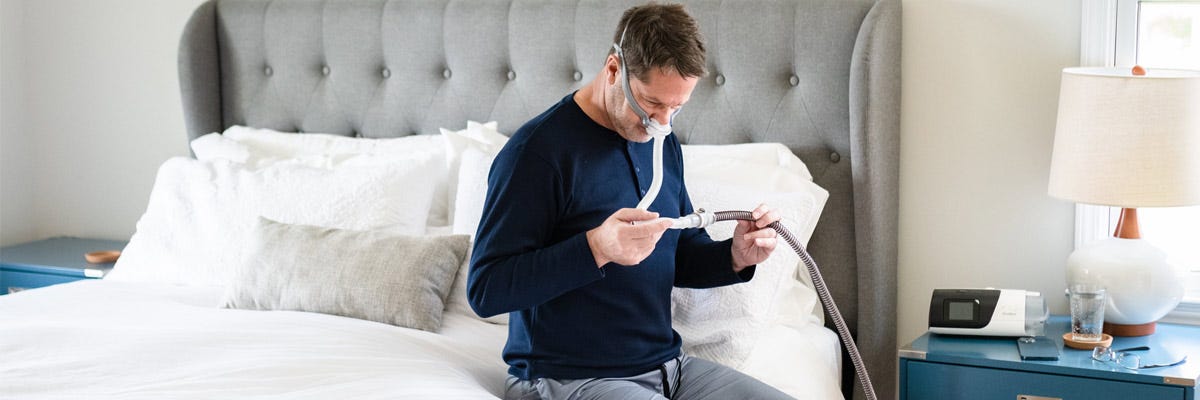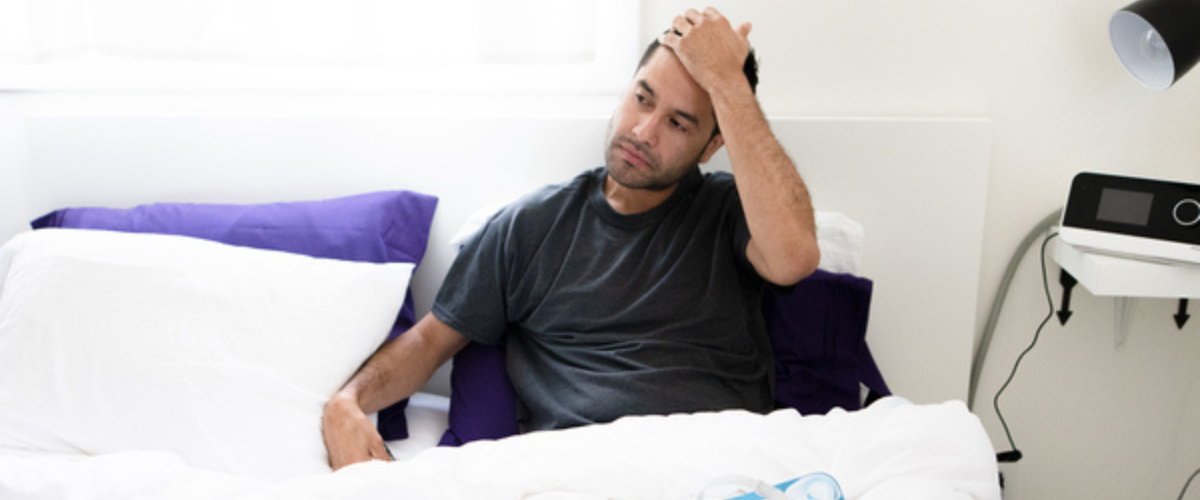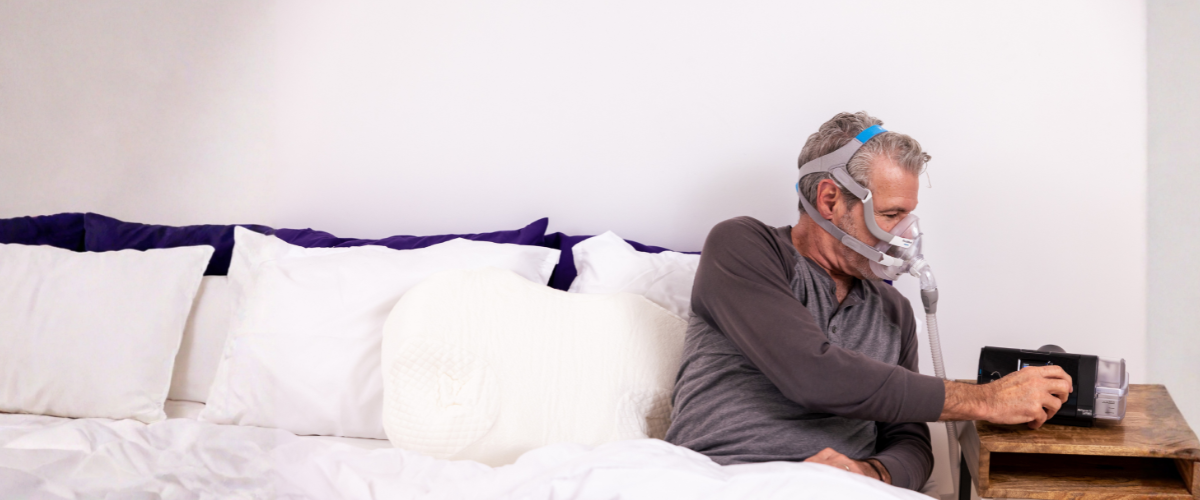Sleep apnea and body weight are closely related, and yes, having sleep apnea can contribute to weight gain. Weight gain can also contribute to sleep apnea, so it’s a two way street.
While not everyone with excess body weight will develop sleep apnea, and vice versa, there are some factors we can point to that impact each. Read on to find out how one affects the other and what you can do about it.
Table of Contents
What is Obstructive Sleep Apnea?
The most common type of sleep apnea is Obstructive sleep apnea (OSA). It affects an estimated 22 million Americans, many of them undiagnosed. OSA occurs when the upper airway becomes partially or fully blocked when the tongue or soft tissues in the throat collapse. Breathing is interrupted temporarily causing you to wake up, sometimes gasping for breath, feeling as if you are breathing through a straw. This can happen dozens or even hundreds of times throughout the night.
All these momentary periods of waking during the night adds up to some serious sleep deprivation, not to mention a reduction in blood oxygen levels. You can see why sleep apnea can lead to serious health conditions if not treated effectively.
Sleep Apnea Symptoms
Often people with sleep apnea will snore, but they won’t be aware until their bed partner or family member in the next room alerts them to it. Other sleep apnea symptoms include:
- Restless sleep
- Excessive daytime sleepiness
- Morning headaches
- Dry mouth or sore throat
- Decreased focus
- Waking up gasping or choking
- And yes, weight gain


Risk Factors for Sleep Apnea
People with excess body weight are at a higher risk for sleep apnea. Weight gain often results in the accumulation of fat deposits around the neck (not surprisingly, the waist is another common problem area).
This heaviness around the throat then leads to the collapse of airways that is the hallmark of sleep apnea. It’s easy to see why doctors often recommend weight loss as a way to reduce symptoms for obese patients.
Older adults are also at increased risk, as are males, though women are certainly at risk, especially if they are overweight. Additional risk factors for OSA include:
- Use of alcohol or sedatives that relax your muscles
- Smoking
- Nasal congestion or allergies
- High blood pressure
- Heart disease
- Type 2 Diabetes
- Naturally narrow airways
- Obesity


Research has shown that even a 10% reduction in body weight can lead to a 50% reduction in the severity of OSA. That’s pretty significant, so it makes sense that a doctor would recommend weight loss to combat sleep apnea. That seems fairly straightforward right? But here’s the problem: sleep deprivation makes it difficult to maintain a healthy weight. If you’re constantly tired, you’re going to have trouble reaching your weight loss goals, and you may even gain weight. This in turn exacerbates the sleep apnea and it becomes a vicious cycle.
Why Poor Sleep and Weight Loss Don't Mix
But how does getting a good night’s sleep help you maintain a healthy weight? There are a few factors involved. The first is pretty simple; if you’re tired and off your game during the day, you’re much more likely to reach for unhealthy foods, especially those with sugar that can temporarily pep you up. And low energy levels aren’t exactly conducive to whipping up that healthy recipe you planned, or hitting the gym or taking a walk after dinner. You’re much more likely to grab a takeout meal for dinner and try and get some rest, too exhausted to do much else.
Metabolic Factors
This reduction in physical activity can result in a slower metabolism, which further complicates the relationship between weight and sleep apnea. When you are sedentary you burn fewer calories, which means you can gain weight even if your diet remains the same.
Hormonal Imbalances
In addition to just being too darn tired to follow a healthy diet/workout regimen, there is evidence that hormones play a significant part. Getting restful, uninterrupted sleep helps regulate our hormonal rhythms. People with OSA (and sleep deprived people in general) have been found to have higher than normal ghrelin levels, a hormone that increases your appetite, and lower than normal leptin levels, the hormone that makes you feel full.
Put all these factors together and it becomes clear why sleep apnea patients are likely to consume more calories than they need.
How CPAP Therapy Can Help
In conjunction with weight loss, CPAP (continuous positive airway pressure) treatment is an effective tool in the arsenal to break this vicious cycle. By targeting sleep apnea on its own, CPAP therapy can promote healthy sleep, which in turn can impact all the factors that are so dependent on sleep. Improved focus during the day, being alert and attentive at work, home, and school, as well as having the energy to cook healthy meals and exercise; all of these are built on the solid foundation that a good night’s sleep can provide.
Whatever your healthcare provider recommends, CPAPsupplies can help get you started. We'll make sure you get the best machine for your needs and a mask that fits (and that is right for your condition, your sleeping position, your preferences, and more)!
References
SC;, Kim TW;Jeong JH;Hong. “The Impact of Sleep and Circadian Disturbance on Hormones and Metabolism.” International Journal of Endocrinology, U.S. National Library of Medicine, https://pubmed.ncbi.nlm.nih.gov/25861266/.














